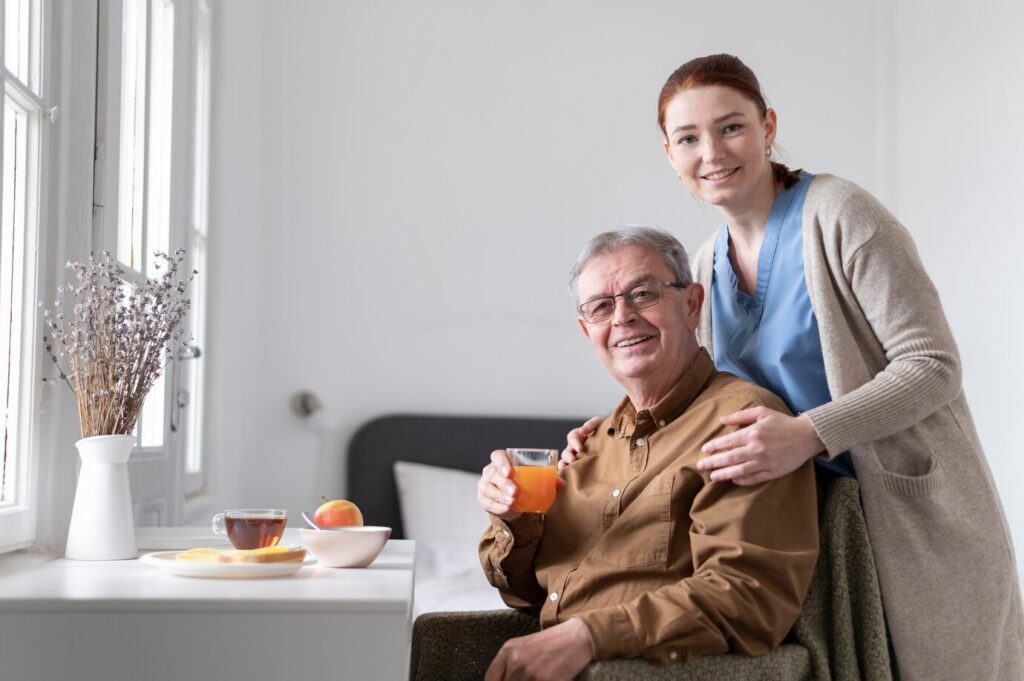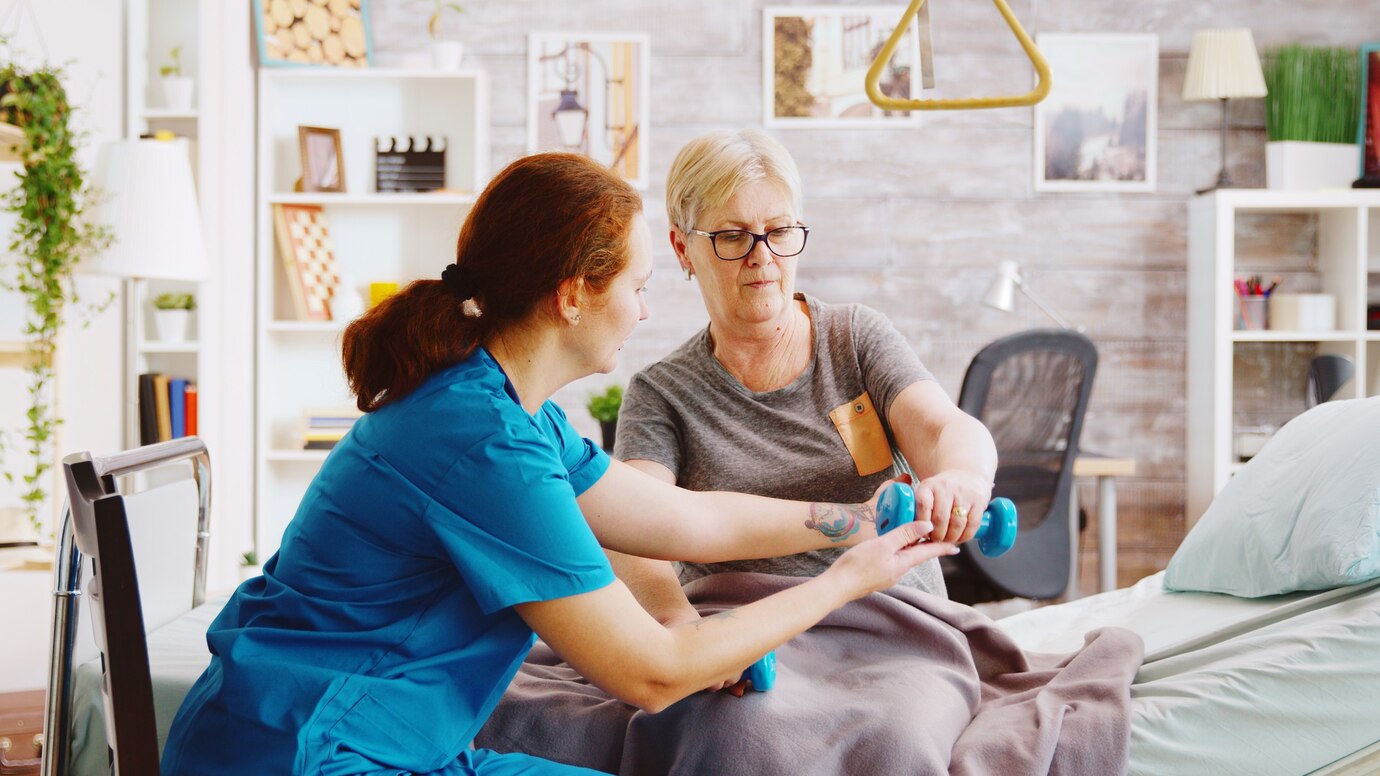Aging is a unique journey – coming with its own set of challenges and rewards. For many seniors, the desire to maintain independence is matched with the need for a bit of extra support to manage daily activities. This is where personal home health care services can make a significantly positive difference.
In this post, we’ll explore how personal home health care positively impacts the lives of seniors, from providing essential assistance to enhancing emotional well-being.
1. Preserving Independence and Comfort at Home

For seniors, home is more than just a place, it represents independence, familiarity, and cherished memories. Personal home health care allows seniors to remain in their own environment, where they feel comfortable and secure.
Customizable Care
Unlike residential facilities, where routines and schedules are often standardized, personal home health care offers the flexibility to tailor services to the individual’s needs. For example, non-medical home care services in Indianapolis can include help with daily tasks like meal preparation, transportation, and light housekeeping. This way, seniors can continue their routines in a way that feels right to them.
Independence in Daily Activities
By assisting with specific daily tasks rather than taking over, home caregivers help seniors maintain control over their daily lives. This balance of assistance and autonomy fosters confidence and a sense of empowerment.
2. Enhanced Physical Health and Safety
Maintaining physical health is crucial as seniors age, but it often requires an extra layer of support. Personal home health care can address these needs by providing professional assistance with mobility, nutrition, and general health monitoring.
Fall Prevention
Falls are one of the leading causes of injury in older adults. Home health caregivers are trained to create safe environments, reducing the risk of falls by identifying and mitigating potential hazards around the house.
Medication Management
Taking medications correctly is essential for many seniors to manage chronic conditions. Caregivers provide medication reminders and ensure that medications are taken as prescribed, preventing missed doses and reducing the risk of medication-related complications.
Physical Activity and Mobility
For seniors who are able, light physical activities, such as walking, are encouraged by caregivers. Gentle exercise promotes cardiovascular health, strengthens muscles, and can improve overall mobility and balance.
3. Social Interaction and Companionship
As seniors age, they often face social isolation due to factors like mobility issues, the loss of loved ones, or the inability to drive. Regular social interaction and companionship provided by personal home care services play a significant role in combating loneliness and promoting emotional well-being.
Building Meaningful Relationships
A home caregiver provides more than just assistance—they offer friendship. Having a consistent, caring person visit regularly builds a trusting relationship, offering seniors a sense of security and connection.
Mental Stimulation
Caregivers often engage seniors in conversations, games, or activities that keep their minds active. Mental stimulation is crucial for cognitive health and helps prevent feelings of boredom or depression, which are often associated with isolation.
Emotional Support
Facing the physical and emotional challenges of aging can be difficult, but a supportive caregiver can provide much-needed emotional support. The simple act of having someone to talk to and share life’s experiences with can significantly boost a senior’s morale.
4. Tailored Support for Individual Needs
One of the biggest advantages of personal home health care is that it’s personalized. Seniors have unique preferences, routines, and personalities, and personal home care can cater to these individual aspects.
Individualized Care Plans
Home care providers develop specific plans based on a senior’s needs, preferences, and lifestyle. For example, some seniors may need more help with physical tasks, while others might benefit most from companionship and meal support.
Adjustable Services as Needs Change
As seniors’ needs evolve, personal home care can adapt, allowing for changes in the level or type of support. This flexible approach ensures that they receive the right level of care at every stage, eliminating the stress of transitioning to a new type of care setting.
Respects Lifestyle Choices
Personal home health care respects and supports seniors’ personal preferences, such as meal choices, activity schedules, and hobbies. This respect for individual lifestyle and choice contributes to their overall satisfaction and contentment.
5. Relieves Stress for Families
Family members often take on caregiving responsibilities for their elderly loved ones, which can be emotionally and physically taxing. Personal home health care provides families with professional support, allowing them to focus on spending quality time with their loved ones rather than managing every detail of their care.
Peace of Mind
Knowing a trained caregiver is looking after their loved one’s needs offers families peace of mind, especially for those who may not live nearby or who have work and family obligations.
Guidance and Resources
Personal home health care providers often assist family members by educating them about effective caregiving practices and offering resources for additional support. This can be invaluable for family members navigating complex health issues or care challenges.
Time to Recharge
Many family members are primary caregivers, but personal home care services allow them to take breaks, preventing caregiver burnout and ensuring they have time to rest and recharge.
6. A Cost-Effective Alternative to Assisted Living

Moving to a care facility isn’t feasible or desirable for everyone, and in many cases, it’s not the most cost-effective option. Personal home health care provides an affordable alternative, particularly for seniors whose needs are mainly non-medical.
Pay Only for Required Services
Personal home health care is often more affordable because families can select the specific services needed without committing to full-time residential care. This flexibility allows families to manage costs while ensuring essential support.
Cost-Effective for Non-Medical Needs
For seniors who need assistance with non-medical tasks, non-medical home care services offer a practical solution, as families only pay for the specific support required without the additional costs associated with medical care facilities.
Reduced Expenses and Financial Planning
Home care providers can work with families to find cost-effective solutions, including scheduling options and flexible service packages, which can make budgeting for long-term care more manageable.
Conclusion
Personal home health care is more than just a service—it’s a lifeline that helps seniors maintain their independence, physical well-being, and emotional health in the comfort of their own homes.
Care United is here to help. With our commitment to providing compassionate and reliable support, our team is dedicated to creating individualized care plans that honor each senior’s unique needs and preferences. Let’s work together to support their journey with care and respect.







